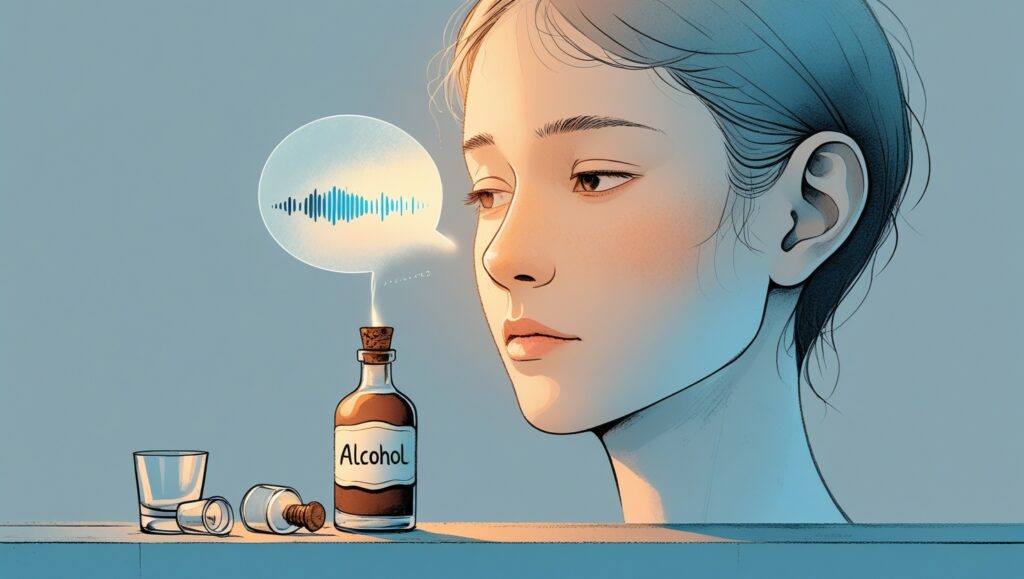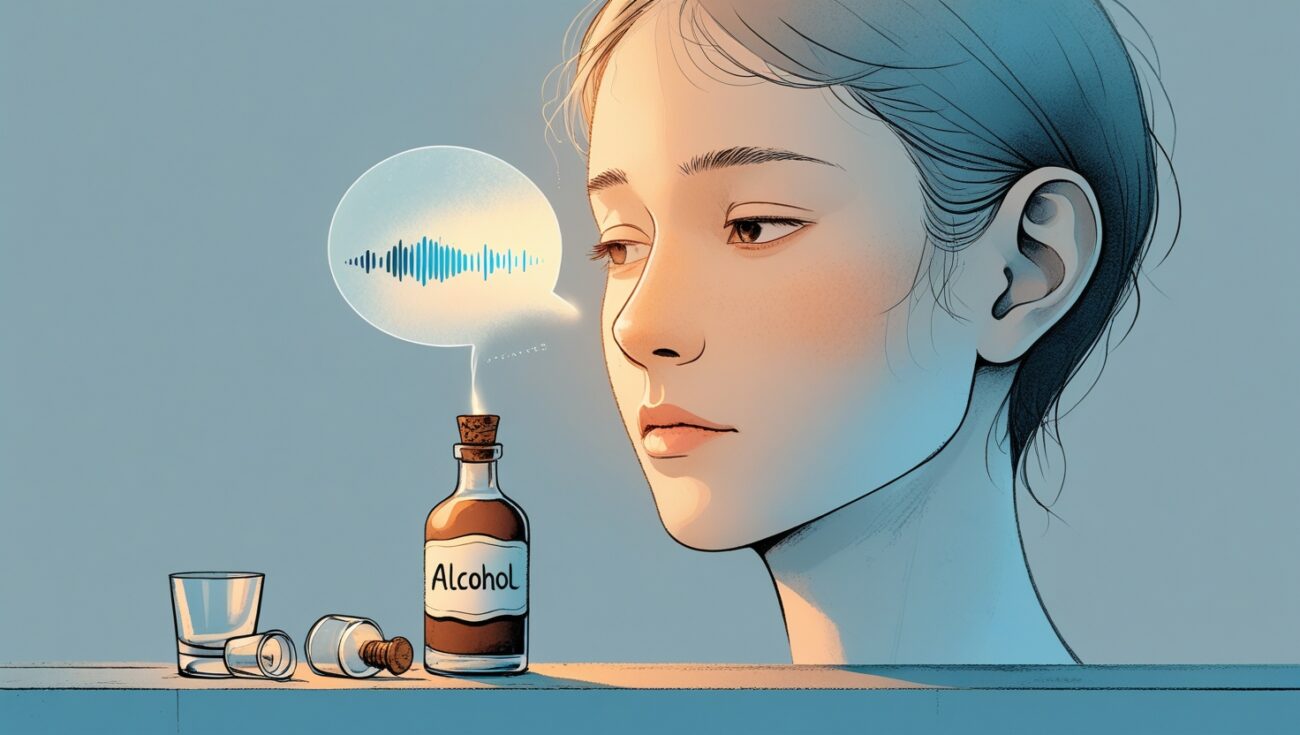How Alcohol Can Affect Your Tinnitus Symptoms
When my tinnitus first started, one of the last things I wanted to give up was my occasional glass of wine.
But after a few rough nights and loud ringing the next morning, I had to ask myself:
“Could alcohol really be making my tinnitus worse?”
After doing my own research — and testing it on myself (while taking Quietum Plus daily for support) — I finally understood how alcohol can affect tinnitus symptoms.

Table of Contents
How Alcohol Affects the Body (And Your Ears)
Here’s what I learned:
✅ Alcohol causes blood vessels to dilate — which can change blood flow in the inner ear
✅ It acts as a stimulant and depressant, which can affect nerves
✅ It disrupts sleep quality — and poor sleep can worsen tinnitus
✅ It can raise blood pressure in some people, which may spike ringing
My Personal Experience With Alcohol and Tinnitus
When I used to have even 1-2 glasses of wine, I often woke up the next morning with louder ringing — especially if I’d also slept poorly.
Since cutting way back — and taking Quietum Plus daily — I’ve had far fewer alcohol-related tinnitus flares.
Tips That Helped Me
✅ Drink in moderation — if at all
✅ Stay well-hydrated (alcohol dehydrates, which can affect ears)
✅ Avoid drinking late at night (to protect sleep)
✅ Take Quietum Plus daily to help stabilize nerves and circulation
✅ Notice patterns — and listen to your body
Why Quietum Plus Helped Me
Even when I do enjoy a small drink, I feel better knowing Quietum Plus is working behind the scenes:
✅ Calming nerves
✅ Supporting circulation
✅ Reducing inflammation
✅ Helping me sleep more soundly
Final Thoughts
If you’re wondering how alcohol can affect your tinnitus symptoms, I can tell you from experience — it absolutely can make it worse, especially if combined with poor sleep or stress.
For me, cutting back and supporting my ears daily with Quietum Plus made a huge difference.
If you want to try what’s worked for me, here’s where to grab it:
Quietum Plus — Official Site
One of the first patterns I noticed — even just one glass of wine could sometimes make my tinnitus louder the next morning.
It wasn’t every time, but when it happened, it really taught me how sensitive the ears can be to alcohol.
I also noticed that if I was already tired or stressed, having alcohol made the next day’s ringing much worse.
Since adding Quietum Plus daily, my nerves feel calmer — which helps me handle occasional triggers (like alcohol) much better.
I also learned that alcohol dehydrates you — and dehydration absolutely affects how my ears feel the next day.
Now, if I do enjoy a small drink, I make sure to drink lots of water and take my Quietum Plus that evening too.
I also started tracking my tinnitus on a calendar — it was clear that nights after drinking = louder ringing the next morning.
For me, it wasn’t worth it — I now save alcohol for very special occasions, and keep it light when I do.
Another thing that helped — eating a good balanced meal before drinking — this seemed to reduce next-morning ringing a bit.
Since taking Quietum Plus, I also recover faster — on the rare times I do have alcohol, the tinnitus calms down quicker the next day.
I also stopped drinking late at night — if I do have something, I keep it earlier in the evening, to protect my sleep.
I noticed my worst tinnitus spikes happened when I combined alcohol + poor sleep + stress — so I manage all three now.
I also remind myself that alcohol affects each person differently — for some, it’s a big trigger… for others, not so much. It’s worth testing for yourself.
Another helpful thing: choosing lower-alcohol options (like a wine spritzer) vs. high-proof drinks.
Before Quietum Plus, even a light drink would leave me buzzing in my ears all night — now, my tinnitus stays much more stable.
I also stay mindful of sugar — many cocktails are loaded with sugar, which can also trigger tinnitus for me.
Since cleaning up my diet, limiting alcohol, and taking Quietum Plus daily, my ears feel much more resilient.
I also learned that alcohol tolerance changes with age — after 50, even small amounts affect my ringing more than when I was younger.
It’s also empowering knowing that I can enjoy life AND protect my ear health — it’s all about balance and smart habits.
Since using Quietum Plus, I feel more in control — not at the mercy of whatever random tinnitus flare might come.
If you’re struggling with alcohol and tinnitus, I highly recommend cutting back and giving your ears extra support with Quietum Plus — it made all the difference for me!
One of the biggest lessons I’ve learned is that alcohol and tinnitus is not a black-and-white issue — it’s very personal. For me, when I first started noticing the ringing, I honestly didn’t want to believe that my glass of wine or an occasional cocktail could be a factor.
But after several months of tracking my symptoms and really paying attention to my body, I saw a clear pattern: on nights when I drank, my tinnitus was louder and more intrusive the next morning — sometimes lasting all day.
That’s when I decided to cut back significantly. I also added Quietum Plus daily to give my ears and nervous system the support they clearly needed. Once I combined those two changes, things really started to shift in a positive direction.
Another thing that became very clear to me was how alcohol affects sleep quality, and how crucial good sleep is for managing tinnitus. I noticed that even if I drank just a small amount, I wouldn’t sleep as deeply, and I’d wake up with more ringing — even on nights when I fell asleep quickly.
The issue wasn’t just falling asleep, it was the quality of the sleep. Poor sleep is one of the biggest triggers for louder tinnitus the next day. Now that I focus on getting deep, restorative sleep — with the help of a calmer bedtime routine and daily Quietum Plus — my mornings are much better.
I wake up with less ringing, more energy, and a much better mood overall.

